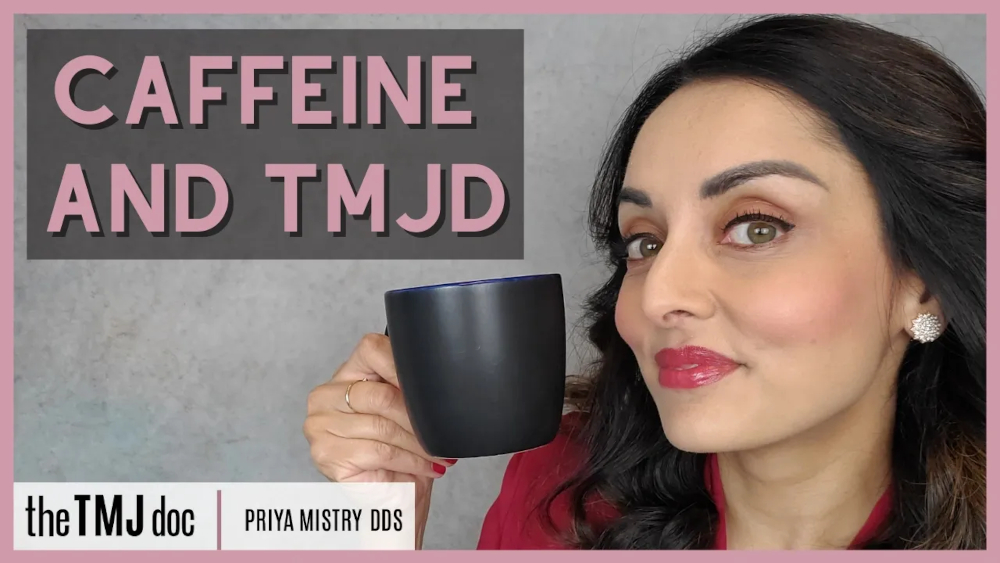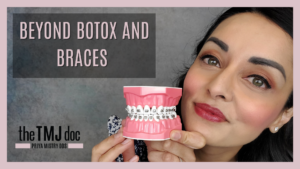This post is all about caffeine and how it affects or impacts TMD. Many of us – myself included – wake up and we are on auto-pilot! We have habits that are built into our day that we don’t even think twice about. One of these habits may be drinking several cups of coffee, tea, or other caffeinated beverages throughout the day. This video is about how that particular habit can negatively affect your TMJD.
I want to start by saying that I need my one cup of coffee a day to get myself pumped up and ready for the day, so this is NOT a caffeine bashing video! However, I will say that ingesting too much caffeine can have many negative impacts that can then worsen your TMD symptoms! Specifically, too much caffeine can:
- Increase anxiety
- Cause insomnia
- Cause dehydration
Increased Anxiety
Caffeine is known to increase alertness by triggering the release of adrenaline, which is a hormone associated with increased energy. Caffeine also blocks adenosine, which is a chemical in the brain that makes us feel sleepy. By increasing adrenaline and blocking adenosine, it’s easy to see why caffeine increases alertness. This is all fine when we have 1-2 cups of coffee or tea per day. However, in higher doses, these effects become much more pronounced, leading to anxiety. Increased anxiety is linked to increased clenching and bruxing activity. Increased force, frequency, and duration of clenching/bruxing activity will then worsen TMD symptoms.
Insomnia
If you suffer from insomnia, you may want to take a look at your caffeine intake. Studies show that too much caffeine decreases total sleep time and increases the amount of time it takes to actually fall asleep. Those with insomnia are generally fatigued, as you can probably imagine. Our bodies NEED restorative sleep to do just that – restore and heal our bodies. If we don’t get good sleep, this is something else that puts our bodies into stress. Again, increased stress is linked to increased clenching and bruxing, which will exacerbate TMD symptoms.
Dehydration
Caffeine is a diuretic, which basically means that it increases the production of urine. Because of this, if caffeine is consumed in excess, it can dehydrate the body. Dehydrated muscles tense and cramp much more easily than hydrated muscles. Dehydration exacerbates both muscle and joint pain, thereby worsening TMD symptoms.
If you’re in pain from TMD and you’re consuming 3 or more caffeinated beverages per day, cut back slowly. You will likely notice a difference in your symptoms! And of course, drink more water! I’m always surprised to find out how many people just won’t drink water and personally, I think it’s delicious! Even if you don’t like it, please make an effort to drink it for your TMD! Hydrated muscles, joints, and ligaments are happier than dehydrated muscles, joints, and ligaments.
Conclusion
Two cups of a caffeinated beverage (or less) is what I would recommend. Too much caffeine will increase insomnia, cause anxiety, and cause dehydration – all of these things can then lead to TMD flares.
Proudly Serving the Vancouver, WA area! (and beyond via Social Media!)
Dr. Mistry Can Help YOU!
If you are suffering from TMJ Disorder and need Dr. Mistry's assistance, please schedule an appointment. You don't have to live your life in pain and! (If you live more than an hour from our office, click HERE
Book A Consultation






